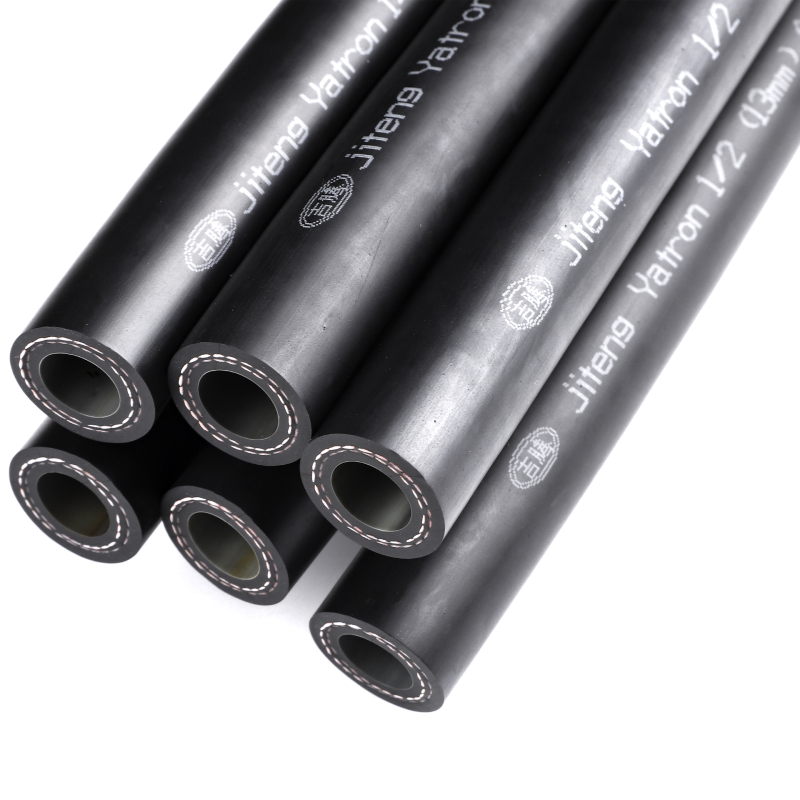Optimizing Fuel Delivery with Advanced Gasoline Tubes for Enhanced Performance
ئاۋغۇست . 16, 2024 15:01 Back to list
Optimizing Fuel Delivery with Advanced Gasoline Tubes for Enhanced Performance
The Science and Utility of Gasoline Tubes in Modern Transportation
Gasoline tubes, also known as fuel lines or fuel hoses, play a critical role in the functionality of modern transportation vehicles. Their primary purpose is to transport gasoline from the fuel tank to the engine, making them indispensable in a variety of automotive applications. Understanding the significance, construction, and maintenance of gasoline tubes can shed light on their essential role in the mechanics of powered transport.
The Role of Gasoline Tubes
In essence, gasoline tubes serve as conduits through which fuel travels to enable the engine to operate. They are integral in maintaining the engine’s performance and ensuring efficiency during combustion. Quality gasoline tubes ensure that fuel flows smoothly without leaks or blockages, which can lead to reduced performance or even engine failure. As vehicles become more sophisticated, with increasingly complex fuel systems, the gasoline tube has evolved to meet higher demands, including higher pressures and temperatures.
Construction of Gasoline Tubes
Gasoline tubes are typically made from materials that can withstand the harsh chemicals in gasoline and the extreme pressures found in modern engines. Commonly, they are constructed from rubber or synthetic polymer materials like thermoplastic elastomer (TPE) or polyamide (nylon), which ensure flexibility, resistance to wear and tear, and longevity. The tubes are often reinforced with braided fibers or stainless steel mesh to prevent bursting under pressure.
Moreover, many gasoline tubes are designed to be resistant to the degradation caused by gasoline and other chemicals, which is crucial in preventing leaks and maintaining safety in automotive design. Their size and diameter can vary depending on the vehicle type, engine size, and specific design of the fuel system, making the selection of the correct gasoline tube crucial for optimal performance.
gasoline tube

Maintenance and Safety Concerns
Given their critical function, maintenance of gasoline tubes is paramount for vehicle safety and efficiency. Regular inspections can identify early signs of wear such as cracks, leaks, or abrasions. These inspections are particularly vital for older vehicles, where materials may have deteriorated over time. A compromised gasoline tube can lead to dangerous fuel leaks, posing significant fire hazards and environmental risks.
In addition to regular checks, it is advisable to replace gasoline tubes as part of routine maintenance, particularly for high-performance or older vehicles. Upgrading to modern tubes made from advanced materials can enhance fuel efficiency and improve safety. Furthermore, vehicle owners should ensure that any replacements endeavor to match OEM specifications, which optimizes engine performance and assures compatibility with the entire fuel delivery system.
The Future of Gasoline Tubes
As the automotive industry shifts towards more sustainable fuel sources and electric vehicles, the relevance of gasoline tubes in traditional engines remains significant, albeit under scrutiny. Innovations in material science may lead to the development of environmentally friendly alternatives or enhancements that improve the efficiency of these tubes. Hybrid vehicles and advancements in fuel technology may also affect the design and utility of gasoline tubes, pushing manufacturers to continuously refine their products to meet evolving standards.
Conclusion
Gasoline tubes, while often overlooked, play a vital role in modern transportation. Their construction, maintenance, and evolution reflect broader themes in automotive technology, including the push for improved safety, performance, and sustainability. As the industry continues to innovate, understanding the importance of gasoline tubes will remain crucial for anyone involved in vehicle maintenance or design, highlighting their indispensable contribution to the mechanics of powered transport.
